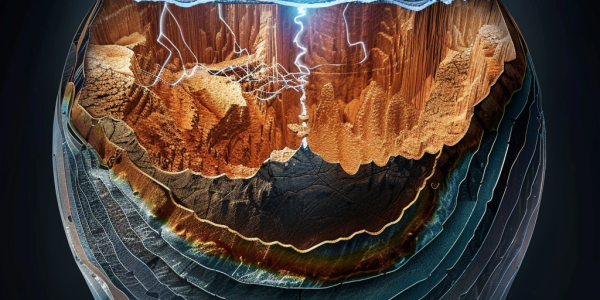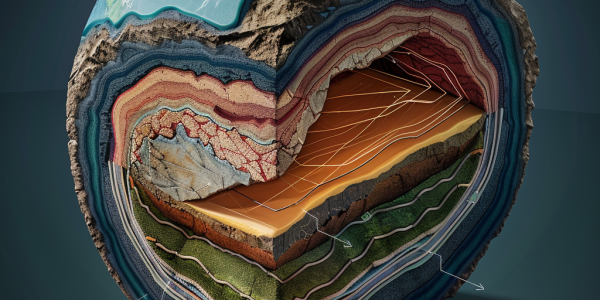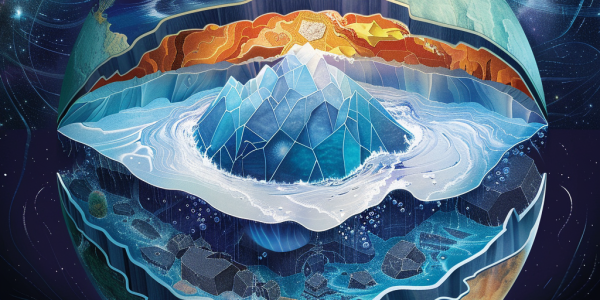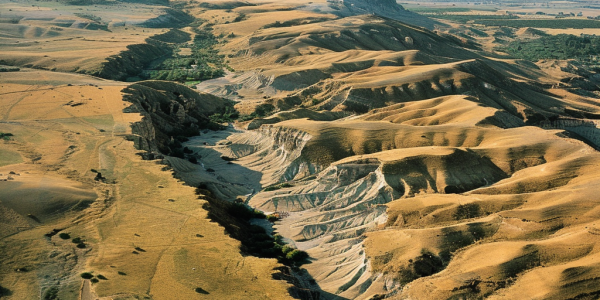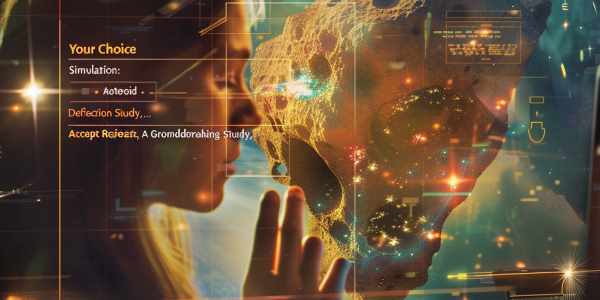Discovery of Vast Water Reservoir Deep Within Earth’s Mantle
A groundbreaking study reveals a vast reservoir of water deep within the Earth, potentially three times the volume of all oceans combined. Researchers discovered ringwoodite, a unique rock in the transition zone that can trap significant amounts of water, shedding light on the Earth’s water cycle and geological processes. This discovery could reshape our understanding of the origins of Earth’s water and its distribution throughout history.
The Sun’s Fate: Understanding Its Evolution and Impact on Earth
Astrophysicists discuss the Sun’s future and its impact on Earth, debunking myths about a supernova. Instead, the Sun will evolve into a red giant, altering conditions on Earth and ultimately leading to a white dwarf. Understanding this stellar evolution highlights the transient nature of existence and the delicate balance of life on our planet.
Global Seismic Event Linked to Greenland Rockslide Highlights Climate Change Impact
A recent seismic event traced to a massive rockslide in Greenland has raised alarms about the impact of climate change on geological stability. Detected globally for nine days, this unique phenomenon highlights the intricate link between glacier retreat and seismic activity, prompting discussions on early warning systems and the risks posed to coastal communities.
Ancient Seafloor Discovery Reshapes Understanding of Earth’s Interior
Recent research from the University of Maryland has uncovered an ancient seafloor beneath the Pacific Ocean, reshaping our understanding of Earth’s interior. Utilizing advanced seismic imaging, scientists revealed a thickened area in the mantle transition zone, providing insights into geological processes like subduction. This groundbreaking study, led by Jingchuan Wang, highlights the potential of seismic techniques in uncovering hidden geological features and enhancing our knowledge of the Earth’s evolution.
Discovery of Potential Additional Layer in Earth’s Inner Core Challenges Geological Models
Recent research reveals a potential new layer within Earth’s inner core, challenging traditional geological models and reshaping our understanding of the planet’s formation. Geophysicist Joanne Stephenson’s findings suggest complex structures affecting seismic wave behavior, indicating significant cooling events in Earth’s history. This groundbreaking study has implications for geology, seismology, and planetary science.
Scientists Discover Vast Water Reservoir Deep Within Earth’s Mantle
Scientists from Northwestern University have discovered a vast reservoir of water, potentially a sixth ocean, located 700 kilometers beneath the Earth’s surface within ringwoodite. This groundbreaking finding could redefine our understanding of the planet’s water cycle and geological processes, suggesting that Earth’s oceans may have originated from its interior rather than external sources. The implications of this discovery are profound, impacting our understanding of tectonic activity and the evolution of the planet’s hydrosphere.
Groundbreaking Study Reveals ‘Dripping’ Crust Phenomenon in Türkiye’s Konya Basin
Recent satellite data has uncovered a fascinating geological phenomenon beneath the Central Anatolian Plateau in Türkiye, specifically the Konya Basin, where Earth’s crust is experiencing a unique ‘dripping’ effect. This groundbreaking research led by scientists from the University of Toronto integrates advanced technologies and a multi-disciplinary approach to reveal the complex dynamics of plate tectonics and subsidence. The findings, published in Nature Communications, not only enhance our understanding of Earth’s geology but also have significant implications for planetary geology on celestial bodies like Mars and Venus.
ESA’s Draco Mission: Pioneering Spacecraft Reentry and Debris Mitigation
The European Space Agency (ESA) is set to launch the Draco mission in 2027, aimed at enhancing our understanding of spacecraft reentry and mitigating space debris. This innovative mission will gather critical data during satellite reentries, contributing to the development of ‘designed for demise’ satellites and advancing sustainable space exploration. With a focus on environmental impacts and safety, Draco represents a significant step towards a zero debris future in orbit.
Balancing Online Privacy and Asteroid Deflection Research
In a groundbreaking study published in Nature Physics, researchers at Sandia National Laboratories have simulated asteroid deflection using X-ray pulses, highlighting the urgent need for effective planetary defense against hazardous near-Earth objects. This innovative research, which builds on NASA’s Double Asteroid Redirection Test (DART), offers promising techniques for safeguarding Earth from potential asteroid impacts.
Earth to Temporarily Gain a Second Moon This Autumn
This autumn, Earth will temporarily gain a second moon as asteroid 2024 PT5 is captured by our planet’s gravity. Expected to appear on September 29 and remain in orbit for two months, this mini-moon will be too dim for the naked eye but detectable by professional telescopes. Discover the fascinating journey of this small asteroid and its implications for astronomy.

